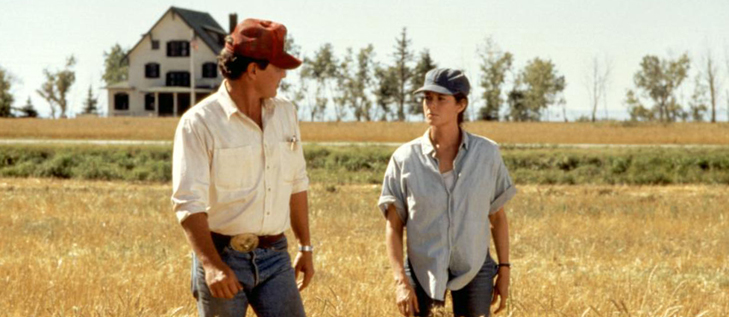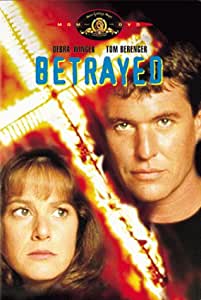From the August 1, 1988 Chicago Reader. — J.R.
The usual limitation of director Costa-Gavras (Z, Missing) is that he makes well-crafted thrillers with liberal political themes that preach to the converted. The interesting thing about his latest movie, scripted by Joe Eszterhas (Jagged Edge), is that it does something rather different — more unsettling and morally ambiguous and, as a look at the underground white supremacist movement in the U.S., more disturbing and explosive. Debra Winger plays a federal agent who infiltrates a murderous group in the rural midwest in order to discover the murderer of a racist-baiting Chicago radio talk-show host (inspired in part by Alan Berg, the Jewish radio personality who was murdered in Denver). She becomes involved with one of the leaders (Tom Berenger) and his homespun all-American family, and is forced by her Chicago-based operative (John Heard) to hang on for dear life. Rather than give us stock racist villains, the film offers a relatively three-dimensional view of their life, their community, and their all-American eccentricities. (Berenger’s character, for example, hunts down blacks in cold blood and teaches anti-Semitism to his cute little girl, but he won’t shake the hand of an American Nazi.) To complicate matters further, the ethical issue of Winger’s own role as an infiltrator who is both personally drawn to Berenger and nauseated by his ideology is played for all it’s worth. The result is a blood-chilling and far from simple look at a subject that most American movies haven’t the guts to go near. It’s beautifully shot by Patrick Blossier, and tautly directed, with a number of fine performances; Betsy Blair, John Mahoney, and Ted Levine are among the costars. (Commons, Chestnut Station, Ridge, Harlem-Cermak, Evanston, Hillside Square, Norridge, Webster Place)


